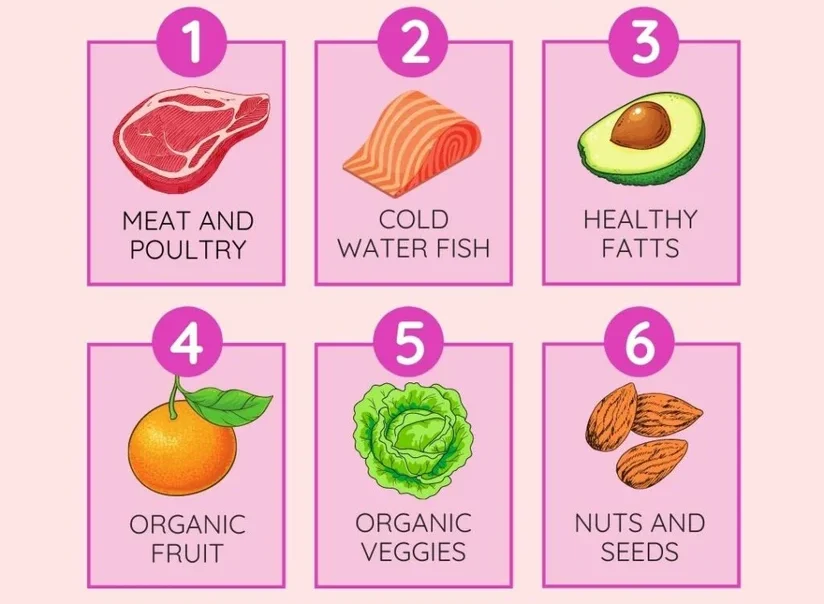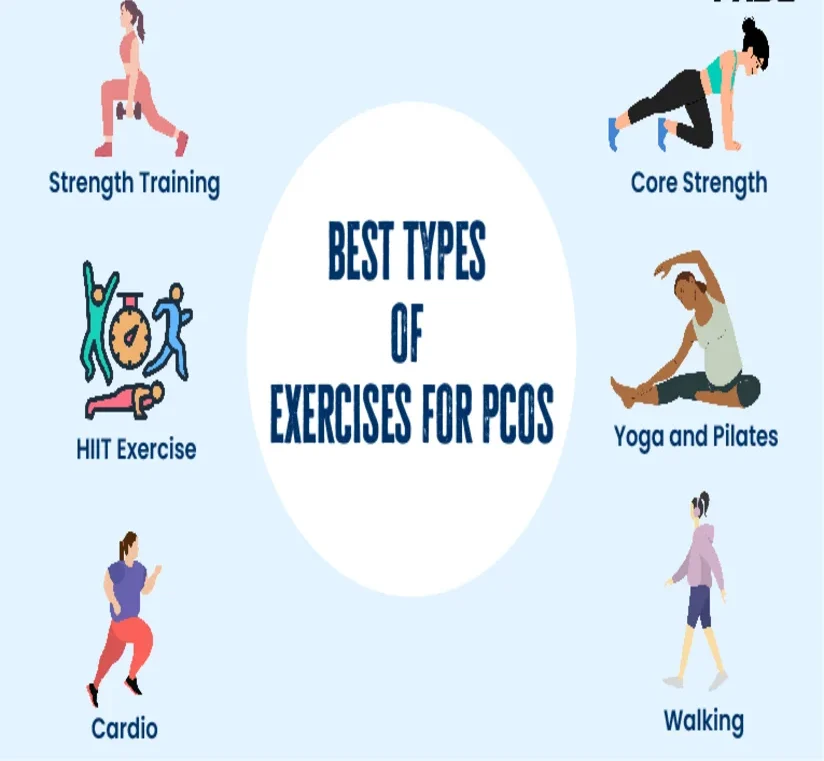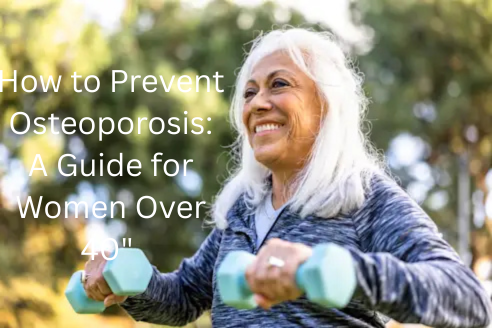Discover how PCOS diet and exercise strategies can help manage symptoms, balance hormones, and improve women’s health naturally.
Introduction
Polycystic Ovary Syndrome (PCOS) affects millions of women worldwide, causing irregular periods, hormonal imbalances, weight gain, and infertility challenges.
While medical treatments are available, lifestyle adjustments—particularly diet and exercise—are among the most effective ways to manage PCOS symptoms naturally.
A tailored PCOS diet and consistent PCOS exercise routine can help regulate blood sugar, reduce inflammation, and balance hormones.
This article explores how diet and exercise play a vital role in PCOS management, offering practical steps women can adopt to support long-term health.
Signs and Symptoms of PCOS
Women with PCOS often experience a variety of symptoms, which may vary in severity. The most common include:
-
Irregular or missed periods
-
Weight gain or difficulty losing weight
-
Excess hair growth on the face or body (hirsutism)
-
Acne or oily skin
-
Thinning hair or hair loss on the scalp
-
Fatigue and mood swings
-
Difficulty conceiving
Because these symptoms overlap with other conditions, lifestyle management through PCOS diet and exercise can help address multiple issues simultaneously.
Why Diet Matters in PCOS
PCOS is closely linked to insulin resistance, meaning the body struggles to regulate blood sugar effectively. A poor diet can worsen hormonal imbalances, while the right foods can help restore balance.

PCOS Diet Recommendations
-
Low Glycemic Index (GI) foods: Whole grains, legumes, and vegetables prevent blood sugar spikes.
-
High-fiber meals: Fiber-rich foods like oats, beans, and leafy greens slow digestion and reduce insulin resistance.
-
Lean protein: Chicken, fish, eggs, and plant-based proteins support muscle growth and satiety.
-
Anti-inflammatory foods: Berries, fatty fish (salmon, sardines), olive oil, and turmeric reduce inflammation.
-
Healthy fats: Avocados, nuts, and seeds help balance hormones and improve ovulation.
Foods to Avoid
-
Processed carbohydrates (white bread, sugary snacks)
-
Sugary drinks (soda, energy drinks)
-
Excess red meat and fried foods
-
Highly processed packaged foods
The Role of Exercise in PCOS
Exercise is essential for women with PCOS because it improves insulin sensitivity, supports weight management, and enhances mood.

PCOS Exercise Recommendations
-
Cardio training: Activities like brisk walking, cycling, or swimming help reduce belly fat and improve heart health.
-
Strength training: Building muscle through weights or resistance bands boosts metabolism and insulin sensitivity.
-
High-Intensity Interval Training (HIIT): Short bursts of intense exercise followed by rest improve insulin resistance more effectively than steady-state cardio.
-
Mind-body workouts: Yoga and Pilates reduce stress hormones and support mental health.
A balanced routine that combines cardio, strength, and relaxation exercises is ideal for PCOS management.
Combining Diet and Exercise for PCOS Management
The most effective approach is combining PCOS diet and PCOS exercise:
-
Pair meals with balanced macronutrients (protein, fiber, healthy fats).
-
Exercise at least 150 minutes per week, mixing cardio and strength sessions.
-
Eat within 30 minutes of finishing workouts to stabilize blood sugar.
-
Monitor progress with a food and activity journal to stay consistent.
Prevention and Long-Term Wellness
Women with PCOS can prevent symptom flare-ups and reduce long-term risks like diabetes and heart disease through sustainable lifestyle habits:
-
Maintain a healthy weight through balanced nutrition.
-
Stay physically active daily, even with short walks or stretching.
-
Get quality sleep, as poor sleep worsens insulin resistance.
-
Manage stress through meditation, yoga, or mindfulness.
-
Regularly consult healthcare providers for personalized advice.
Frequently Asked Questions (FAQ)
1. Can PCOS be cured with diet and exercise?
No, PCOS cannot be cured, but symptoms can be effectively managed with consistent lifestyle changes.
2. What is the best type of diet for PCOS?
A low-GI, high-fiber, anti-inflammatory diet is most beneficial. It stabilizes blood sugar and supports hormone balance.
3. How often should women with PCOS exercise?
At least 3–5 times per week, including both cardio and strength training sessions.
4. Is weight loss necessary for all women with PCOS?
Not all women with PCOS need to lose weight. However, for those who are overweight, even a 5–10% reduction can improve symptoms.
5. Can PCOS diet and exercise improve fertility?
Yes, lifestyle changes can improve ovulation, hormonal balance, and overall fertility outcomes.
Conclusion
PCOS can be overwhelming, but women have powerful tools at their disposal. By adopting a PCOS-friendly diet and incorporating regular exercise, it is possible to manage symptoms, balance hormones, and improve overall health. Consistency is key—small, sustainable lifestyle changes often lead to the best results.


Pingback: Hair Care Tips for Hormonal Hair Loss in Women
Pingback: Safe Makeup Ingredients for Sensitive Skin